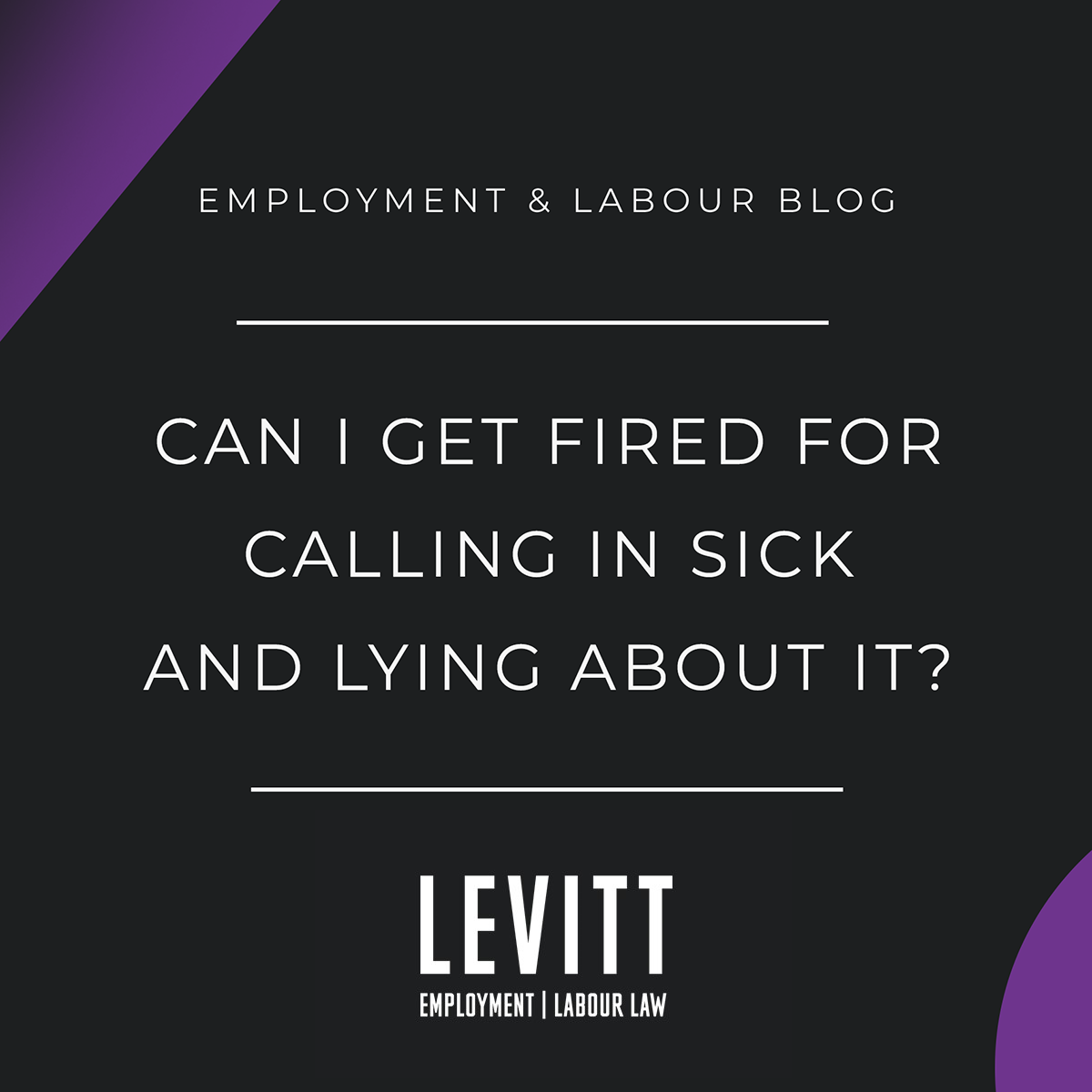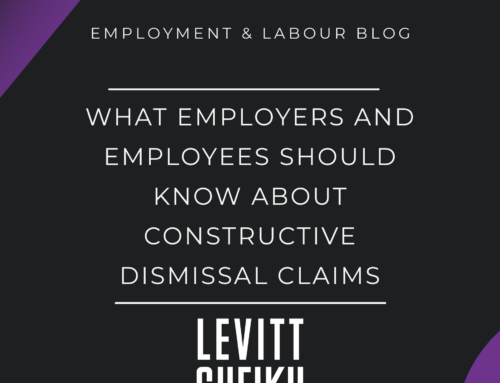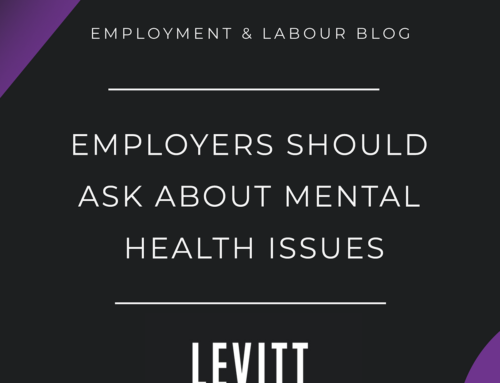Employees tempted to take a sick day to jump-start the weekend or beat the traffic on the way to cottage country had better think twice. Despite what most people think, employers do have recourse when they catch employees fraudulently using sick days and that recourse is sanctioned by the courts.
Across Canada, courts have generally held that discharge is an appropriate penalty for employees falsifying sick leave or medical claims. Such claims take advantage of employers’ reliance on employees’ good faith. They are also easy to commit and difficult to detect, which is why courts and arbitrators consider such a harsh penalty to be necessary to deter other employees.
A judicial review of a labour arbitrator’s decision in Alberta’s highest court in 2013 echoed this view. Jarrod Underwood, a service technician for Telus Communications Inc. for five years, asked for time-off to play in a softball tournament. His request was denied for staffing reasons. But when, on the morning of the tournament, just a few minutes before the start of his shift, Underwood texted his manager saying he could not make it into work that day “due to unforeseen circumstances” the justifiably suspicious manager visited the ballpark to witness Underwood pitching in the softball tournament.
When questioned the following day, Underwood maintained he was sick but could manage his symptoms better at the ballpark than he could at a customer’s home and that he was watching and not playing. When confronted on the latter point, Underwood replied he was only pitching, not batting.
The arbitrator reinstated Underwood and substituted a one-month suspension for the termination.
Court of Queen’s Bench Justice John McCarthy upheld Telus’s decision to terminate Underwood’s employment, concluding that the trust relationship was irreparably damaged by Underwood’s dishonesty.
In a case in Ontario, Ineos Nova Ltd. fired Tony Vandescheur. After leaving a phone message claiming to be sick, Vandescheur’s cellphone continued recording a conversation with his neighbour, in which he admitted to lying about being sick.
Notwithstanding Vandescheur’s long record of good service and the minimal financial loss to the employer, the arbitrator ultimately found that the loss of trust was significant enough to justify his dismissal.
Employees can also be tripped up by their social media use, especially if they are posting photos on Facebook and Instagram from their so-called sick day.
In a 2014 case in Ontario, Pranav Bedi, a bus driver with the Toronto Transit Commission (TTC), was dismissed after calling in sick for three consecutive days. Pictures on his Facebook page, however, showed him in Las Vegas at his brother’s bachelor party, and there was a post where he stated “Vegas tonight! Can’t wait! Brother’s bachelor party is gonna be fun! …”
In this case, the Arbitrator found that Bedi had engaged in a premeditated course of fraudulent conduct that struck at the very root of the employment relationship.
While employees who can justify their time off for medical or personal problems cannot be dismissed for cause and the damages will be increased if they are, those caught enjoying that day in the sun, at the ballpark, or even in Las Vegas, may find themselves with plenty of time off when discovered.
The bottom line is: your employer can fire you for calling in sick if you’re lying and get caught.






